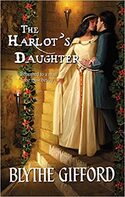 Whenever I say I write medieval romance, the first comment I get is “But you have to do so much research!”
Whenever I say I write medieval romance, the first comment I get is “But you have to do so much research!”
Let’s leave aside for the moment that for me, research is a “get to,” not a “have to.”
The truth is, contemporary authors have to do research, too. I had breakfast with Mary Alice Monroe the other day and she is about to go out in the Atlantic Ocean on a shrimp boat in total darkness for the sake of her next book. This seems to me an entirely different level of commitment than Googling “forms of address Richard II.”
The point of all the research, of course, isn’t to educate the reader. That sort of “information dump” kills the story. We do it because we want to plunge you into a world you can see, hear, taste, smell, and touch. We want to draw you in so deeply that you forget about the “real” world and live in the fictional one, at least for awhile. We try to create an experience so authentic that you believe not only the world, but the truth of the characters who live there.
For me, it’s not a only a question of accuracy. Research gives me my best story ideas. Whenever I get stuck, going back to history always seems to uncover the nugget that seems perfect for the story.
 My latest medieval, THE HARLOT’S DAUGHTER, was actually inspired by a real person, the illegitimate daughter of a much loved king of England and his much hated mistress. (Edward III and Alice Perrers, for students of the period.)
My latest medieval, THE HARLOT’S DAUGHTER, was actually inspired by a real person, the illegitimate daughter of a much loved king of England and his much hated mistress. (Edward III and Alice Perrers, for students of the period.)
When the king died, his mistress and her children were kicked out of court. Her property was seized and she was nearly banished.
There were only a few tantalizing facts about the children, who subsequently disappeared from history.
In my imagination, one of her daughters returns to court ten years later, determined to reclaim her rightful place. It was a reverse Cinderella story: she begins as near a princess then is hurled out of paradise and into the ashes.
In telling her story, I had to do something I had not done before: portray real historical characters in my fiction. It added a layer of complexity (okay, fear) to my work. In writing a real person, it’s not just a matter of having dates correct. It’s whether your portrayal of a real king and court meshes with the historical perspective on the monarch.
I’ll admit, I tend to be a little fanatic about this. I think it comes from my training as a journalist. I write with a map and a calendar at my elbow and I’ve gone so far as to check tide tables and moon phases for my historical settings. (Otherwise, it would be far too easy to have a full moon every night so the hero and heroine could look into each other’s eyes at midnight.)
Not every author shares my obsession.
I’ve heard some authors say the only thing that matters is the story. If you’ve constructed a compelling page turner, who cares whether the gun the cop is carrying is the wrong caliber? Ultimately, there’s truth to that. We’re telling a story, not writing a textbook. And most readers won’t even know whether your world is authentic.
What do you think?
What books have you read that really took you into the world the author created?
Are you rabid about details of one particular period or profession but not so much about others?
Ultimately, do you care how “accurate” a book is? If so, how can you tell?
I’m interested in your thoughts.
Best,
Blythe


No Comments
Comments are closed.